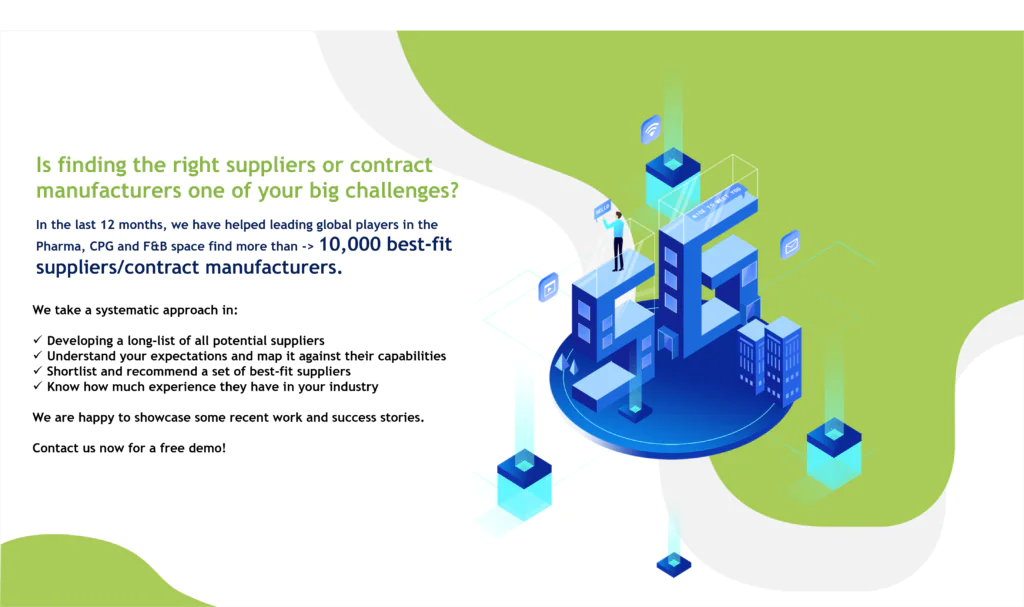By: Manpreet Kaur
Autonomous procurement is a model that relies on data and technology to automate the entire source-to-pay process. This model combines historical data from past experiences with real-time data that is synchronized with market trends. As a result, procurement teams can reduce the need for human intervention and achieve a higher level of efficiency. However, before reaching the fully autonomous phase, procurement is likely to go through an interim stage where technology will assist the procurement workforce.
Autonomous procurement streamlines decision-making by leveraging advanced technologies like artificial intelligence and machine learning. It enables systems to autonomously analyze vast datasets, identify patterns, and make informed procurement decisions without constant human intervention. This not only accelerates the procurement process but also enhances accuracy and efficiency, reducing the burden on human resources and allowing professionals to focus on strategic aspects of procurement rather than routine tasks.
Here’s an overview of how autonomous procurement simplifies decision-making:

Autonomous procurement is an innovative approach that leverages advanced technology and automation to simplify and optimize the procurement process in an organization. It involves using artificial intelligence (AI), machine learning, and data analytics to enhance the efficiency, cost-effectiveness, and data-driven decision-making in procurement.
Data analytics help in decision-making:
Autonomous procurement systems excel in analyzing extensive data from diverse sources such as supplier databases, historical procurement records, market trends, and cost structures. Through sophisticated data analysis, these systems derive actionable insights, facilitating informed decision-making. By discerning patterns, assessing supplier performance, and gauging market dynamics, autonomous procurement optimizes the sourcing process. This comprehensive approach enhances decision accuracy, identifies cost-saving opportunities, and mitigates risks. The result is an agile and efficient procurement strategy that adapts to dynamic market conditions, maximizing value for organizations and allowing human professionals to focus on strategic aspects rather than routine data processing.
Autonomous procurement makes supplier selection easy:
Autonomous procurement systems streamline supplier selection by evaluating and rating potential vendors across diverse criteria like price, quality, reliability, and delivery time. This automated assessment process ensures objectivity and consistency, mitigating human bias. By systematically analyzing supplier performance data, these systems identify the most suitable vendors for an organization’s specific needs. This not only accelerates the procurement cycle but also enhances the likelihood of successful, long-term partnerships. The result is a more efficient and strategic supplier selection process, optimizing resource allocation and fostering collaborations with suppliers who align closely with the organization’s requirements and standards.
AI-powered procurement solutions can predict demand:
AI-powered procurement solutions enhance planning by accurately predicting demand for goods and services. Leveraging advanced algorithms and data analysis, these systems forecast future requirements with precision, minimizing the risk of overstocking or shortages. By considering historical usage patterns, market trends, and external factors, AI optimizes inventory management and procurement timelines. This proactive approach enables organizations to align their procurement activities seamlessly with anticipated demand, reducing operational costs, and enhancing overall efficiency. Consequently, businesses can maintain optimal inventory levels, meet customer demands promptly, and strategically allocate resources, fostering a more agile and responsive supply chain.
Cost Optimization: By analyzing historical data and market trends
Autonomous procurement systems leverage historical data and market trends analysis to identify cost-saving opportunities for organizations. By scrutinizing past procurement activities and monitoring market dynamics, these systems enhance negotiation strategies, enabling organizations to secure better prices and terms. The insights derived from comprehensive data analysis empower procurement professionals to make informed decisions, optimize supplier relationships, and strategically cut overall procurement expenses. This proactive approach not only ensures financial efficiency but also positions organizations to adapt swiftly to changing market conditions, fostering a cost-effective and agile procurement process that aligns closely with the company’s strategic goals.
Compliance and Risk Management:
Autonomous procurement systems play a crucial role in monitoring and enforcing compliance with procurement policies and regulations. By automating oversight, these systems meticulously scrutinize transactions, contracts, and supplier activities to ensure adherence to established guidelines. This reduces the risk of fraud, errors, and non-compliance, fostering a more secure and transparent procurement environment. The ability to consistently enforce policies enhances organizational integrity and regulatory adherence, mitigating legal and financial risks. This proactive approach not only safeguards against potential pitfalls but also reinforces a culture of accountability and ethical procurement practices within the organization, ultimately contributing to long-term sustainability and trust.

Purchase Approval Workflow:
Autonomous procurement systems automate purchase approval workflows, streamlining decision-making across organizational levels. By enforcing predefined approval processes for each procurement request, these systems ensure consistency and adherence to established protocols. This not only expedites the approval cycle but also minimizes the likelihood of errors or deviations from organizational policies. The automation of workflows enhances efficiency, allowing for swift and standardized decision-making. Moreover, it provides transparency, enabling stakeholders to track and monitor the status of procurement requests.
Autonomous procurement can help organizations maintain better relationships:
Autonomous procurement fosters improved supplier relationships through continuous monitoring of performance, streamlined contract management, and efficient issue resolution. By automating these processes, organizations can proactively address concerns, ensure contractual compliance, and optimize collaboration with suppliers. This approach enhances communication, reduces friction, and promotes a collaborative environment, ultimately contributing to more productive and sustainable partnerships between organizations and their suppliers.
Decision-makers can access real-time insights:
Autonomous procurement empowers decision-makers with real-time insights and comprehensive dashboards, offering a holistic view of the procurement process. This accessibility enables quicker and more informed decision-making by providing up-to-the-minute data on key metrics, supplier performance, and overall procurement status. The ability to swiftly analyze and act upon this information enhances agility, allowing decision-makers to respond promptly to changing circumstances, optimize strategies, and ensure the efficiency and effectiveness of the entire procurement lifecycle.
Autonomous procurement can support strategic sourcing initiatives:
Autonomous procurement enhances strategic sourcing initiatives by identifying opportunities for consolidation, standardization, and supplier collaboration. Through advanced data analysis, the system pinpoints areas where combining purchases, standardizing processes, and collaborating with key suppliers can yield optimal results. This approach not only streamlines operations but also maximizes cost savings and efficiency. By automating the identification of strategic sourcing opportunities, organizations can proactively optimize their procurement strategies, fostering a more streamlined and effective sourcing process aligned with overall business goals.
Scalability:
Autonomous procurement systems seamlessly scale with organizational growth, efficiently managing increased procurement demands at various levels. These adaptable systems offer flexibility and automation to handle expanding complexities in the procurement process. By accommodating growth, they ensure consistent and effective procurement management, regardless of organizational size or complexity. This scalability feature enables organizations to navigate evolving procurement needs, maintain operational efficiency, and sustain a streamlined and responsive procurement framework as they expand and evolve.

Contact us now to solve your procurement problems!
Author’s Details
Manpreet Kaur
Assistant Manager Presales – Sourcing and Procurement Intelligence
Manpreet is a presales specialist at Infiniti Research and has expertise in sales, business strategy execution, and innovative solution design. She is actively involved in supporting clients from F&B, CPG, Healthcare, Pharma, Chemicals, BFSI, Oil & Gas and Automotive sectors.




